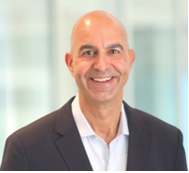Think Like a Start-Up: How to be Financially Savvy in Your 20s
As a father of four, I continually think about just how important financial literacy is for young people. Barclays recently conducted a survey that found that most Americans – 76% actually – are not confident about how to maximize their personal savings. Developing strong financial habits as a young adult eases stress and creates opportunities later in life.
Here’s the most important piece of advice I regularly give someone beginning their career: Do what every small business does when it’s getting off the ground. Get into the habit of building a robust budget. Set your financial strategy and update it regularly. Repeat this cycle annually.
A fiscal plan is more than a monthly list of expenses. It considers money that comes in beyond your base income and helps target costs that occur on a less-than-monthly basis. It gives you a strong understanding of how your money is being spent over the course of time. It also provides you with some flexibility on how you save money.
Here's how to get started:
1) Build out – and revise – your cash flow: Know what your assets are. This starts with all your monthly income, which gives you a baseline of what you can expect in a certain year and tracks how and when you have opportunities to grow your budget. But it should also include – on a real-time basis – those unpredicted sources of income that pop up every year, such as a surprise gift, a spot bonus or supplemental income from a short-term opportunity. I suggest taking “extra income” and directing it to savings or retirement investments immediately (note: there are exceptional compounding values of early investments towards retirement).
2) Understand your annual costs: Many people work off a monthly budget. But that only tells half the story. Identify your quarterly expenses and one-time costs (i.e., auto repairs). Account for unexpected spending. Look at your income on a rolling basis, rather than as a monthly snapshot, and plan for the unexpected.
3) Understand your liquidity: Once you can compare your annual income to your financial commitments, you’ll be able to better control your cash flow and understand where and when to save. Most importantly, you’ll have a comprehensive view so you can help identify your priorities. Want to rent a new place that costs $200 more a month? Will that come from your vacation savings or your daily coffee fix or eating out budget? Want to make a major purchase? How many months will it take to save for it (or pay it off)?
The reason why this advice is so important is that many people – of all ages – leave it to chance. I believe robust budgeting and planning can significantly reduce the possibility of surprise and puts you in the position of controlling your future, rather than the future controlling you.
Financial literacy can be the key to a healthy wallet. Most people can improve their finances by learning a few best practices when it comes to money management. Barclays recently launched a new educational website that provides helpful information, such as how to make a budget, how to improve your credit score, as well as how to identify and avoid scams.
Visit https://moneybasics.barclaycardus.com/ to learn more.
This information is for educational purposes only, not intended to be financial or legal advice. Always consult a qualified financial advisor before taking any action based on this information. The views and opinions expressed are those of the authors and do not necessarily reflect the official policy, position, or opinion of Barclays Bank Delaware.
Blog Author
Peter A. Gasparro
Chief Development Officer
Barclays US Consumer Bank
Peter A. Gasparro is the Chief Development Officer for Barclays US Consumer Bank where he oversees the bank’s partner-focused strategy as well as its business and corporate development efforts in the United States.
Peter is a seasoned financial services executive with more than 25 years of experience in business and corporate development, product development, merchant services, and co-branded credit card management.
Peter is a proud alum of Seton Hall University, where he earned a master’s degree in corporate communication and a bachelor’s degree in marketing.
